Is your pet pawing at their eyes or rubbing their face along your carpets and furniture? While humans with itchy eyes commonly have allergies, pets are more likely to suffer from other underlying eye problems, such as dry eye disease. So, before you buy your itchy pet some Benadryl, contact the Envision More Veterinary Ophthalmology team, who will find your pet’s actual problem and recommend the best treatments. Here is an overview of common reasons we see pets with itchy eyes and how our team addresses the problem to relieve their discomfort.
#1: Dry eye disease in pets
Dry eye (i.e., keratoconjunctivitis sicca) is a common eye condition in dogs that leads to eye itching, thick discharge, redness, corneal ulcers, and corneal scarring because of decreased or poor-quality tears. Any dog can develop dry eye, but the following groups are at higher risk:
- Middle-aged and senior dogs
- Dogs with endocrine disorders (e.g., diabetes, thyroid disease)
- Certain breeds, including the Cavalier King Charles spaniel, shih tzu, West Highland white terrier, Yorkshire terrier, cocker spaniel, Pekingese, Lhasa apso, pug, and bulldog
Dogs with untreated dry eye are at risk for long-term scarring, reduced vision, and possible eye loss from severe or infected ulcers. Treatment requires life-long prescription eye drop medications designed to improve tear production and reduce inflammation.
#2: Conjunctivitis in pets
The conjunctiva is a thin, translucent membrane that lines the interior eyelids and the white part of the eye (i.e., sclera) and contains many blood vessels that supply the eye tissues with nutrients and immune cells. The conjunctiva can become inflamed from viral or bacterial infection, airborne irritants (e.g., smoke, dust), an immature immune system in puppies and young dogs, or environmental allergies.
Conjunctivitis is itchy and uncomfortable, and can lead to excessive watery or mucoid discharge that exacerbates your pet’s discomfort. Treatments include prescription steroid and immunosuppressant eye drops to control inflammation, and antiviral or antibacterial medications, as needed, for infection.
#3: Blepharitis in pets
Blepharitis results when a pet’s eyelid margins become severely inflamed, red, bumpy, and itchy. An immune system glitch causes inflammation, which is treated with aggressive immune suppressant drugs, such as prednisone. Oral and topical medications via drop or ointment can reduce inflammation and itch, and are needed long-term for optimum control.
Blepharitis may occur together with meibomianitis (i.e., inflammation inside the oil glands that line the eyelid margin). When oil production is reduced or oil glands are blocked, tears evaporate from the eye surface too quickly, which may lead to dry-eye-like signs that can be improved with warm compresses or lubricating ointments.
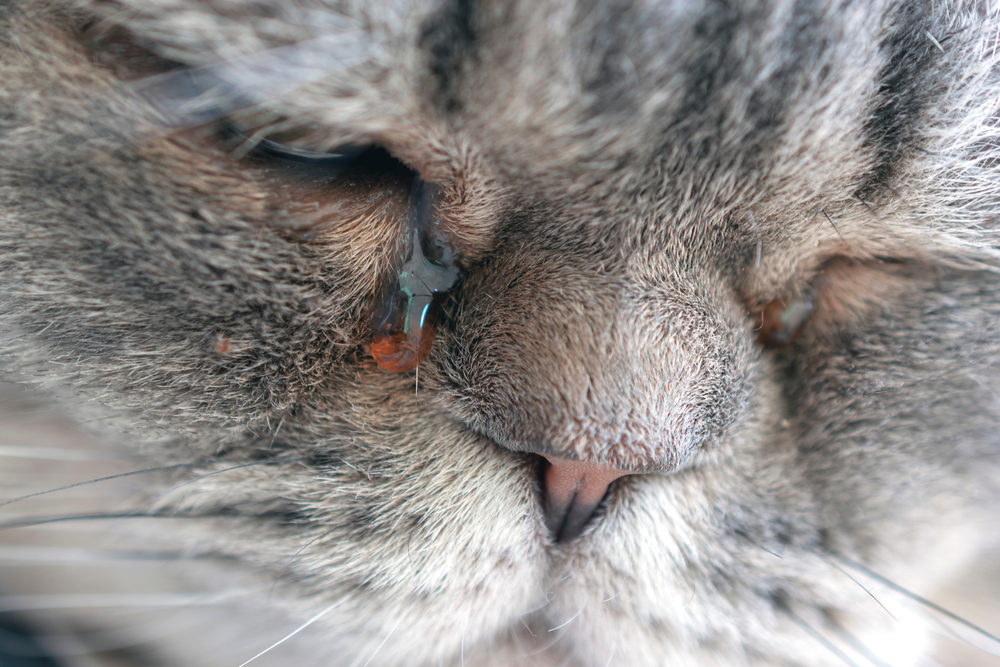
#4: Entropion in pets
Growing puppies and kittens can develop entropion (i.e., an eyelid with too much skin that rolls inward and forces eyelashes to rub on the eye). This condition is typically inherited and is more common in certain breeds, including Maine coon cats and shar peis, bulldogs, pugs, Saint Bernards, Labradors, and other large-breed or wrinkly-faced dogs, but can occur in any dog or cat. Adult pets who suffer trauma or lose too much fat around their eye from normal aging or a disease process can also develop entropion. Pets with entropion in one or both eyes usually squint, have watery discharge, and rub at their itchy, irritated eyes.
Surgery is the best option for puppies and kittens with entropion, but not until the pet is close to their full adult size. Temporary tacking sutures or skin filler injections can roll the eyelids outward and protect the cornea from irritation until pets are old enough for surgery.
#5: Allergic skin disease in pets
Environmental allergies can sometimes cause recurrent conjunctivitis in pets. Treatment is the same as we discuss above. However, some pets who scratch their face have good eye health, and are actually scratching at their ears or lips because of a systemic allergic skin disease caused by environmental, parasitic, or food triggers. Systemic allergy treatment with oral medications, medicated shampoos, ear treatments, or allergy immunotherapy are the best options for these pets, as eye medications won’t help.
Our Envision More Veterinary Ophthalmology team members are experts in identifying and treating pet eye diseases. Contact us to schedule a visit if your pet shows itchy eye signs, or with questions about your pet’s eye care and health.

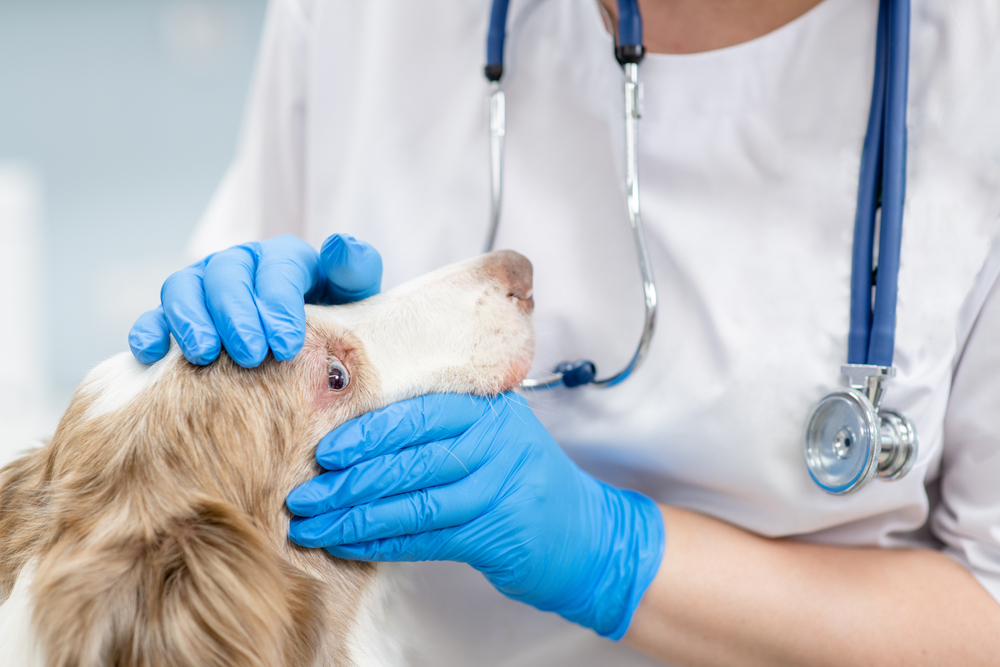
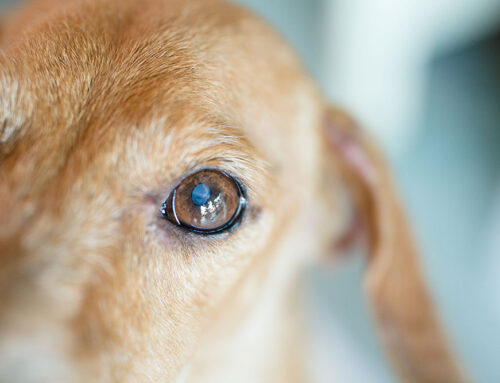
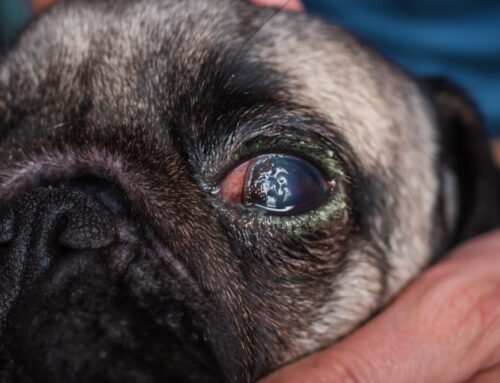
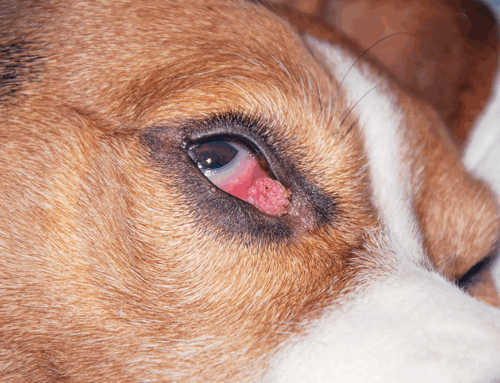
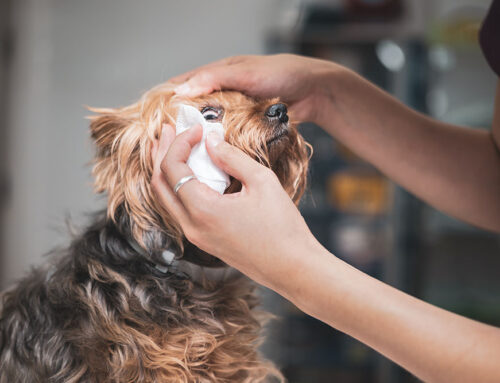

Leave A Comment